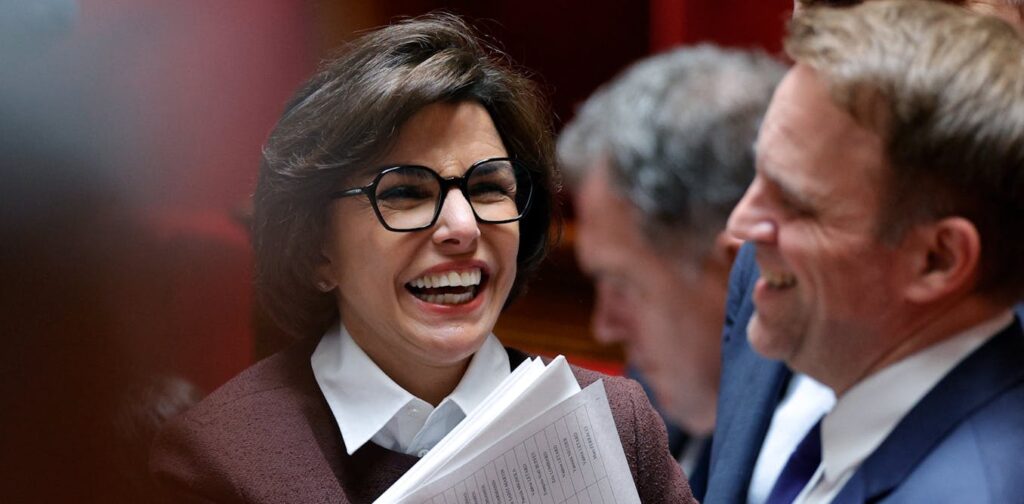
Fusionner l’audiovisuel public : pour quoi faire ?
Title: Fusion of France’s Public Broadcasting: What’s the Purpose?
On June 30, French deputies will vote on the proposed merger of France Télévisions, Radio France, and the INA (National Audiovisual Institute), a project led by Rachida Dati. Staff members have been on strike since June 26, expressing their concerns over the potential impact of this transformation.
The proposed merger is part of a wider plan to modernize France’s public broadcasting sector, which has been under review for several years. Rachida Dati, a Member of the European Parliament and former French Justice Minister, has been a vocal advocate of the fusion, arguing that it would lead to increased efficiencies, cost savings, and better quality programming.
Opponents of the merger, including many staff members of the three organizations, however, are worried about job security, program diversity, and the editorial independence of the institutions. They argue that the fusion could lead to a centralized bureaucracy that might compromise the unique identities of each institution and their ability to cater to diverse audiences.
France Télévisions, Radio France, and INA have their own distinct roles within France’s public broadcasting landscape. France Télévisions operates several television channels, Radio France runs various radio stations, and the INA is responsible for archiving French radio and television production. The merger would create a single entity, which supporters argue would allow for more efficient use of resources and better coordination of content.
Rachida Dati, in her proposal, emphasizes that the fusion is not about cutting costs, but about modernizing and strengthening the French public broadcasting system. She argues that in an era of digital transformation and increasing competition from international streaming services like Netflix and Amazon Prime, it is vital for French public broadcasters to innovate and adapt.
She said, “We need a public audiovisual sector that is strong, independent, innovative, and can meet the challenges of the digital age. The merger of France Télévisions, Radio France, and INA is a step in that direction.”
However, the proposal has met with significant resistance. The unions representing the staff of the three institutions have called for a strike since June 26, demanding more clarity about the implications of the merger.
The unions argue that the merger could lead to job losses, reduced program diversity, and a potential erosion of editorial independence. They are also concerned about the impact on the regional outlets of Radio France and France Télévisions, which play a crucial role in providing local news and programming.
“The proposed merger raises a lot of questions and fears,” said a union representative. “We need to ensure that it does not lead to a loss of diversity and quality in our programming, and that it respects the identity and independence of each institution.”
In response to these concerns, Rachida Dati has insisted that the merger will not result in job losses and that the identities of each institution will be preserved. She also promised that there will be consultations with staff and unions throughout the process.
Despite the ongoing strike, the vote on the merger is expected to proceed as planned on June 30. If approved, the fusion of France Télévisions, Radio France, and INA will mark a significant transformation of France’s public broadcasting landscape.
This merger comes at a time when public broadcasters worldwide are reassessing their roles in the face of digital transformation and increasing competition from global streaming giants. The outcome of this vote will not only determine the future of French public broadcasting but could also influence the strategies of public broadcasters globally.
As the D-day approaches, the hopes and fears of the employees hang in the balance. The result could change the face of French public broadcasting, either paving the way for a modern, unified, and stronger public broadcasting system, or potentially undermining the diversity and independence that have been the hallmark of France’s public audiovisual sector.
